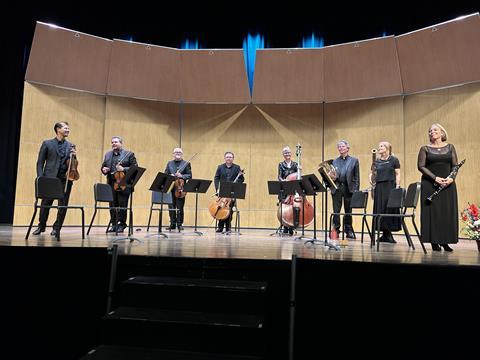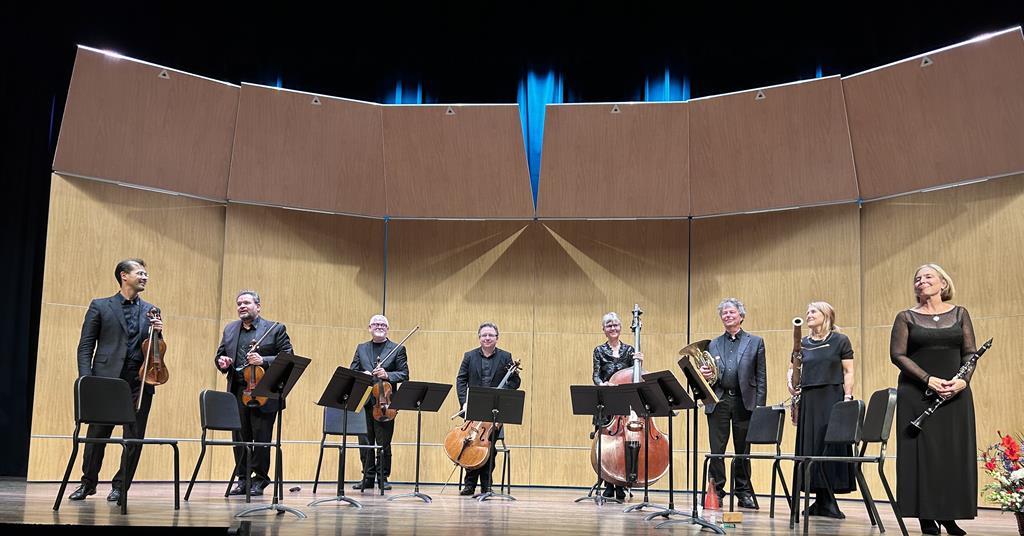
Discover more Featured Stories like this in The Strad Playing Hub
It was a rainy afternoon in the city that gave birth to the atomic bomb when the Academy of St Martin in the Fields (ASMF) Chamber Ensemble took the stage. Presented by the Los Alamos Concert Association, now in its impressive 79th season, the concert was the sixth stop in the octet’s tour of the United States and violist Robert Smissen noted that the ensemble had already weathered through rain in Virginia, Georgia, even California, which he added, made them feel right at home. The association’s artistic director, Linda Deck, introducing the group commented that she expected the ensemble to light up the room. That they did.
Especially light was the second selection of the afternoon, Jean Francaix’s Octet, À huit (1972). The four-movement piece was a sweet and wistful confection of winds and brass blending with strings, nearly danceable and verging on frivolous but enough virtuosity, especially from the clarinet, played brilliantly by Fiona Cross, to give the performance a degree of grandeur. The lustrous horn of Stephen Stirling, pizzicato bass work by Lynda Houghton, and Julie Price’s lyrical bassoon drove the piece effortlessly while the muted strings – two violins, viola and cello – provided a foundation for the piece, which not surprisingly at one point morphed into a Viennese waltz.
The first selection, Huw Watkins’ Octet, was commissioned by the AMSF for this autumn tour, specifically intended for an American audience. Unfortunately, it got off to a squeaky start. Perhaps it was the acoustics of the venue, a high school auditorium, that created the impression that the winds launched offkey. But then, as the piece progressed, the squeakiness continued and it became clear that this was intentional, a sort of squawking and squealing, like a Charles Ives composition, with the horn and clarinet decidedly on their own idiosyncratic course as the strings sawed away attempting to generate some cohesion in the piece. It wasn’t quite there, the effect was not a collaboration between winds, brass and strings but a disconnect.
Fortunately, the ASMF performance ended in an absolutely masterful rendering of Franz Schubert’s Octet in F. Whereas the Watkins Octet felt tentative and small, the Schubert Octet was confident, full-bodied and symphonic, with violinists Tomo Keller and Harvey De Souza, luxuriating beautifully through the slow passages and soaring in the scherzos, with tremendously vigorous and virtuoso assists by Richard Harwood on cello and Smissen on viola.
The winds collaborated in stirring fashion, with the horn and bassoon in particular creating stunning harmonic accompaniments and solos. The influence of Beethoven on the piece was appropriately underscored in this muscular performance. J. Robert Oppenheimer, the founder of Los Alamos and the father of the bomb, was a Beethoven devotee. He certainly would have approved.

